From August 19th to 23rd, 2024, the Training Workshop on Marine Radioactivity was held at Xiamen University Malaysia, Selangor Darul Ehsan, Malaysia. The workshop was organized by the State Key Laboratory of Marine Environmental Science (Xiamen University), Center for Marine and Environmental Radioactivity (Woods Hole Oceanographic Institution) and Xiamen University Malaysia. The local organizers are China-ASEAN College of Marine Sciences (Xiamen University Malaysia), and Universiti Malaysia Terengganu. This workshop is also endorsed as an United Nations Decade of Ocean Science for Sustainable Development Activity.
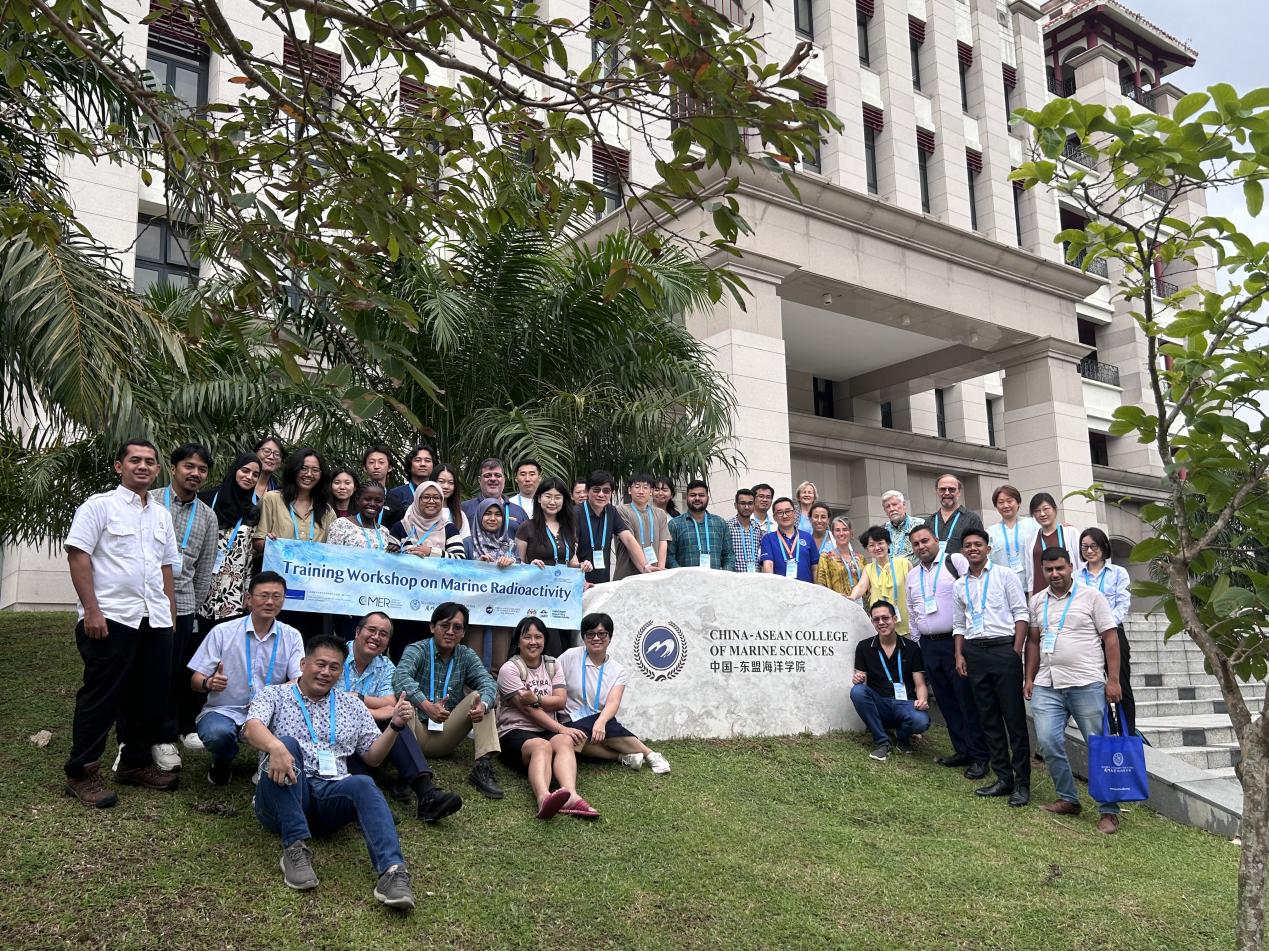
Group Photo
The workshop was initiated by Dr. Ken O. Buesseler from the Woods Hole Oceanographic Institution (WHOI) and Dr. Minhan Dai from the State Key Laboratory on Marine Environmental Science (MEL), in collaboration with the SCOR Working Group 146 (Radioactivity in the Ocean, 5 Decades Later Rio5). The workshop has been held in Xiamen (China), Paris (France), Joondalup (Australia) and San Juan (Puerto Rico) since 2016. The aim of the workshop is to train university students, early career scientists, and other professionals who are interested in, or will pursue research and/or management positions that require knowledge of radioactivity and its application in ocean sciences.
This workshop has gathered distinguished international scholars from diverse fields, each renowned for their profound teaching and outreach experience, including Dr. Ken O. Buesseler from the WHOI, Dr. Claudia Benitez-Nelson and Dr. Willard S. Moore from the University of South Carolina, Dr. Sabine Charmasson from the Institut de Radio protection et de Sûreté Nucléaire (IRSN), Dr. Núria Casacuberta Arola from the ETH Zürich, Dr. Jing Zhang from the University of Toyama , as well as Dr. Minhan Dai and Dr. Guizhi Wang from Xiamen University.
The effectiveness of the workshop was further enhanced by the invaluable support provided by technical instructors such as Weifang Chen and Junhui Chen from MEL, Junwen Wu from Shantou University, Pang Swee Yun from the China-ASEAN College of Marine Sciences (CAMS), and Poh Seng Chee from Universiti Malaysia Terengganu (UMT).
Through a rigorous selection process, the workshop selected 27 participants from 14 countries, including China, Japan, Indonesia, Malaysia, Thailand, Algeria, Kenya, etc.
The workshop was structured to include theoretical courses, field sampling and laboratory practical sessions. An icebreaker activity provide an opportunity for both participants and lecturers to know each other, helping to bridge gaps and foster better understanding among everyone involved.
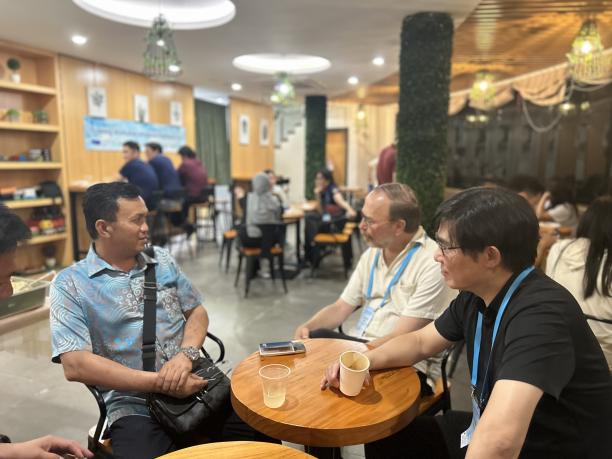
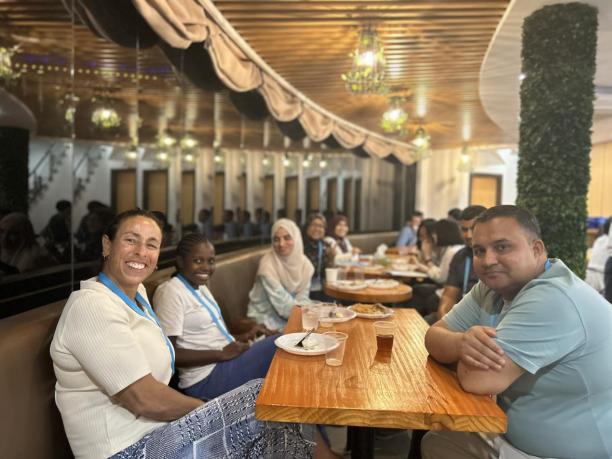
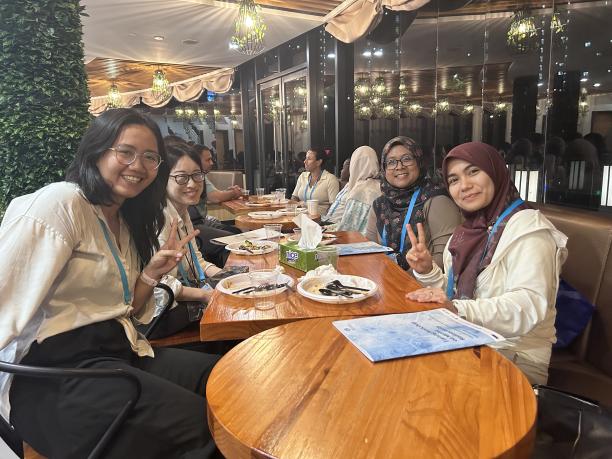
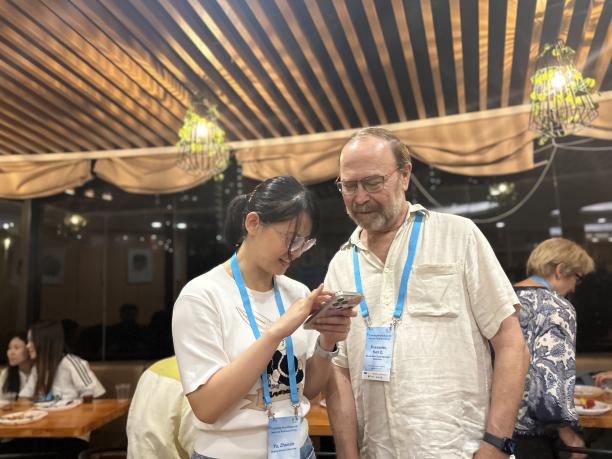
Icebreaker on August 19
On August 20, following a brief opening ceremony, overview talks on the fundamental theoretical knowledge of marine radiochemistry were given by Drs. Claudia Benitez-Nelson, Ken O. Buesseler, Núria Casacuberta Arola and Sabine Charmasson. They covered topics including basics of radioactivity, introduction to marine radioactivity, radio isotopes as tracers in the sea, impact of radionuclides on marine ecosystem.
Specific lectures were given by Drs. Minhan Dai, Núria Casacuberta Arola, Guizhi Wang and Willard S. Moore, discussing the application of radioisotopes in the ocean, including applications to biological pump studies, long-lived radionuclides for the study of water masses in the North Atlantic Ocean and Arctic Ocean, applications to sediment dating, applications to submarine groundwater discharge studies and methods in marine radioactivity and instrumentation.
Drs. Ken O. Buesseler and Willard S. Moore also provided insights into the latest advancements in marine radiochemistry research, while Dr. Jing Zhang shared the experience in data management of International GEOTRACES program.
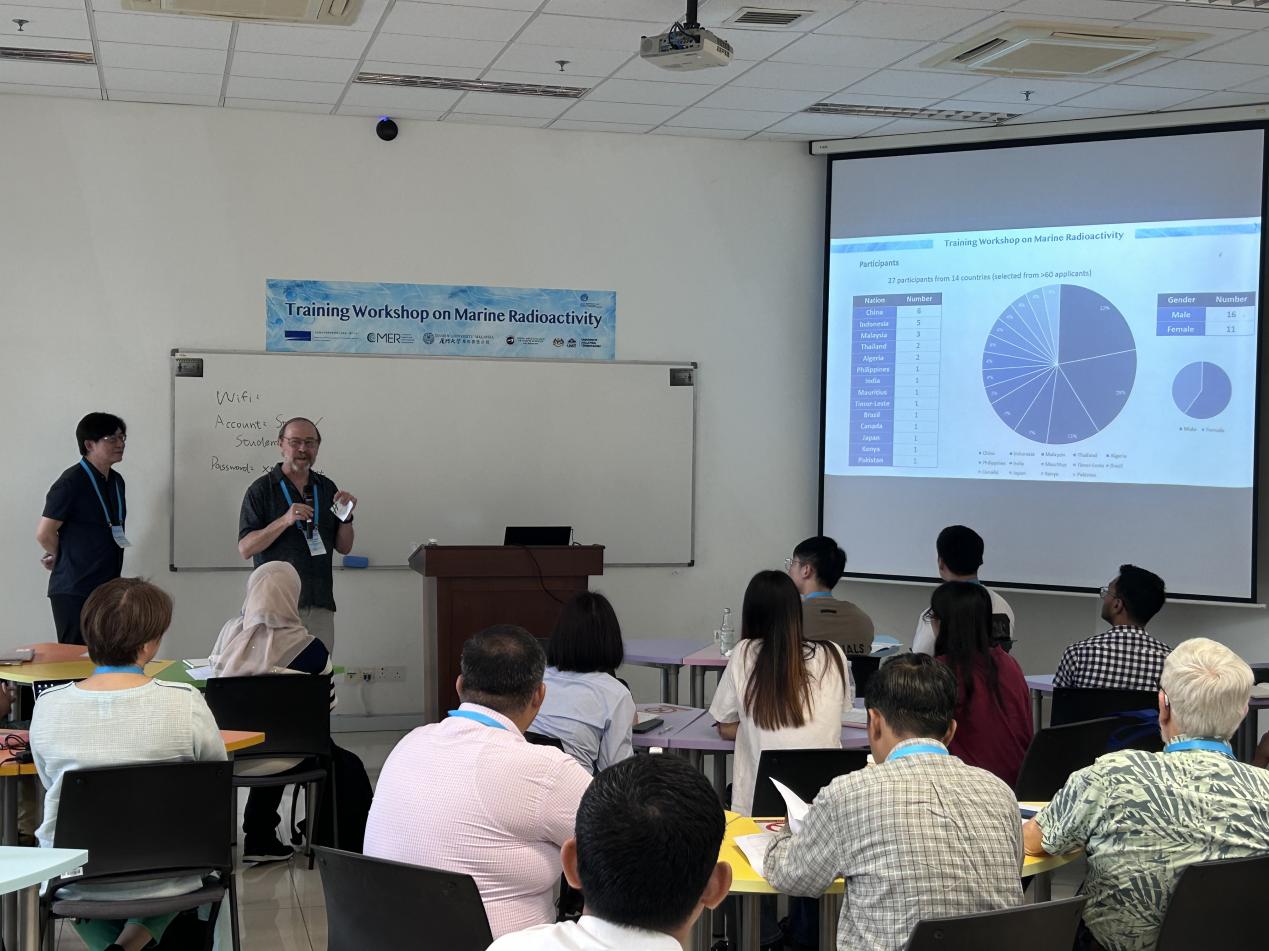
Opening ceremony hosted by Minhan Dai and Ken O. Buesseler
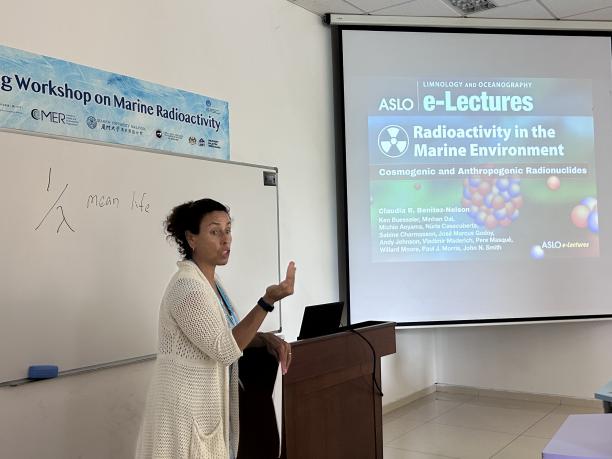
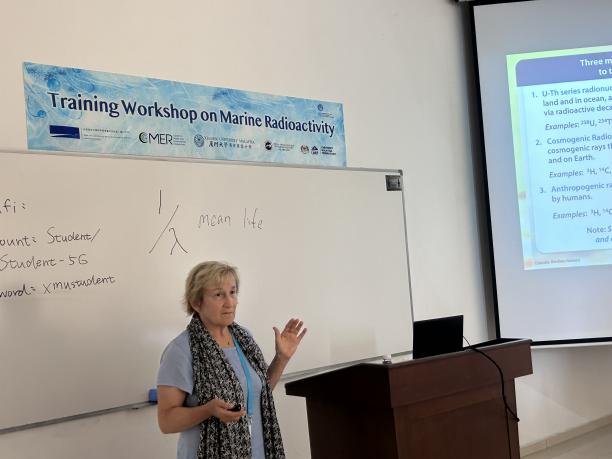
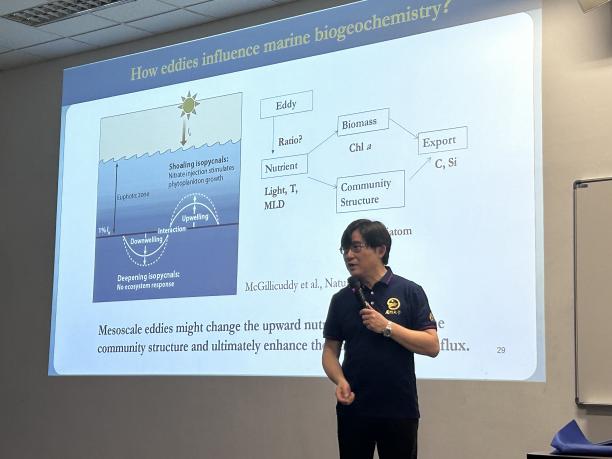
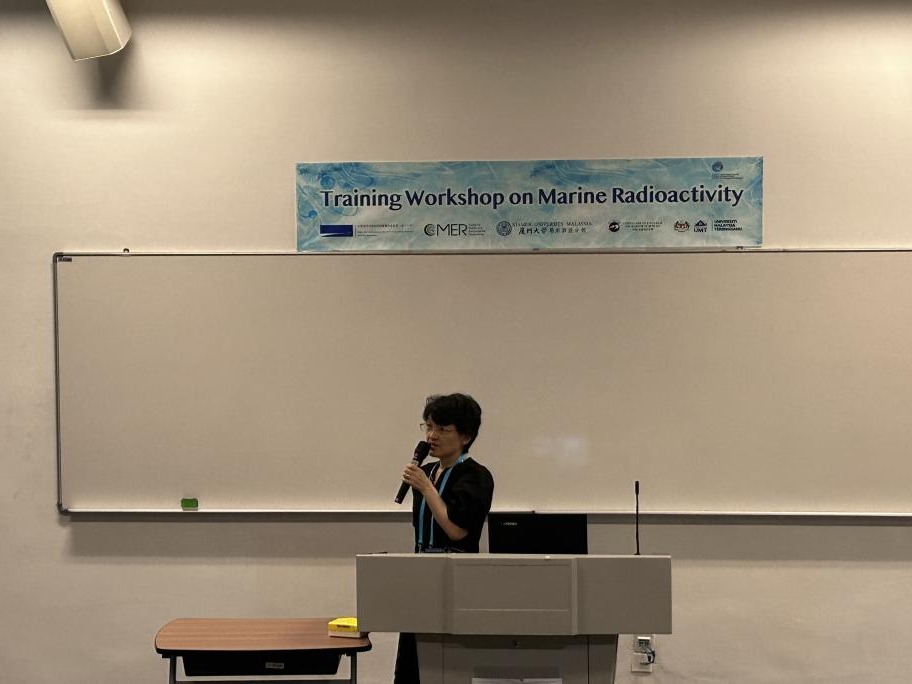
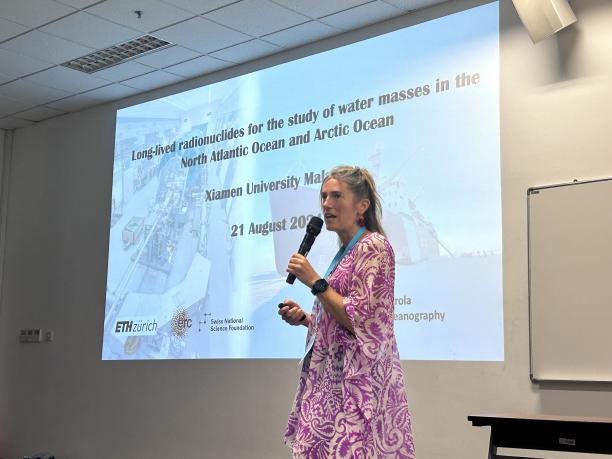
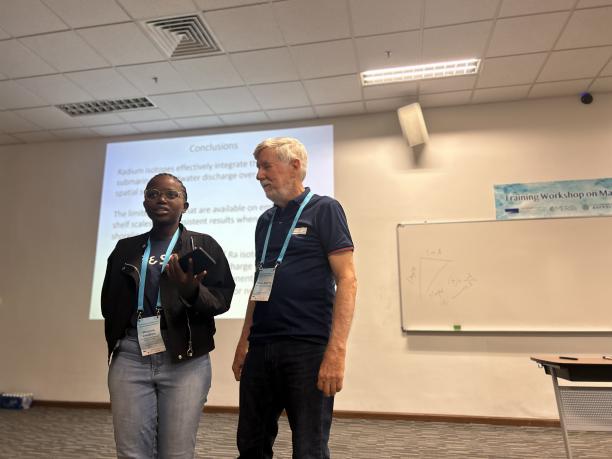
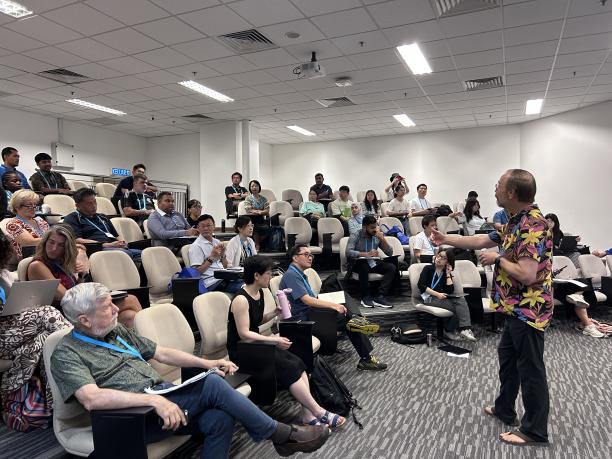
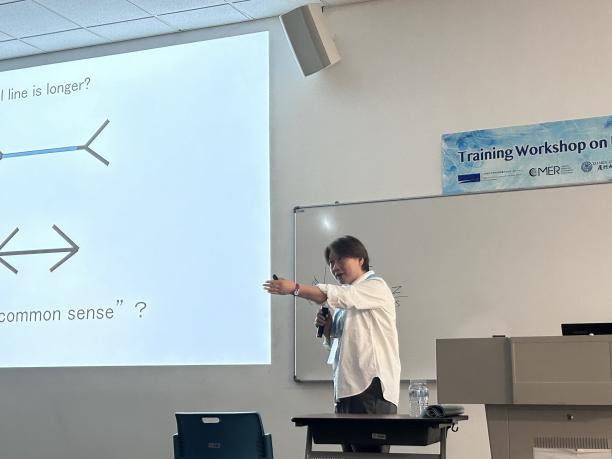
Overview talks and specific lectures
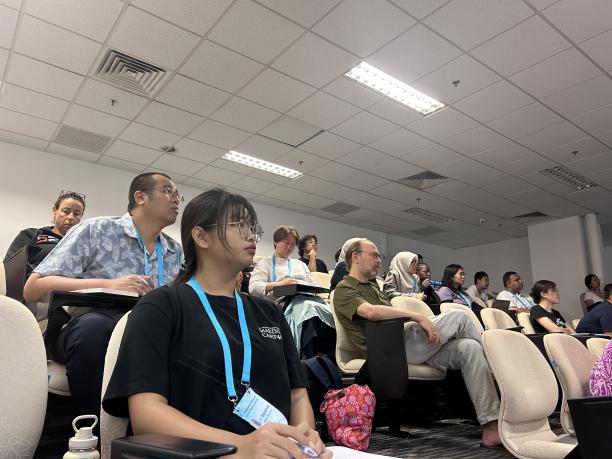
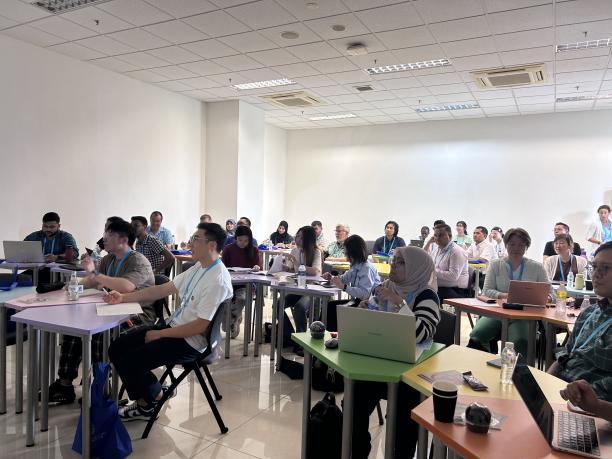
Participants attentively listened
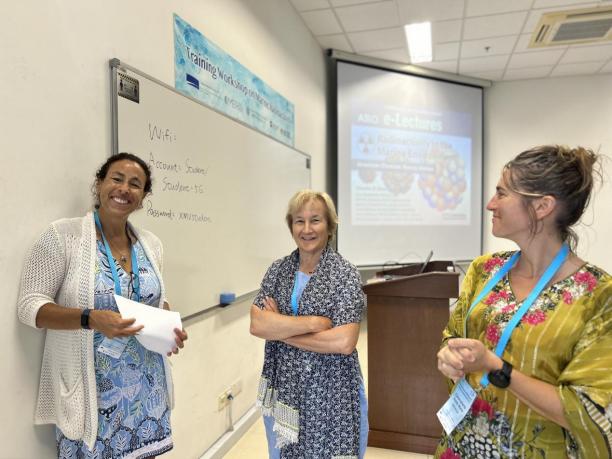
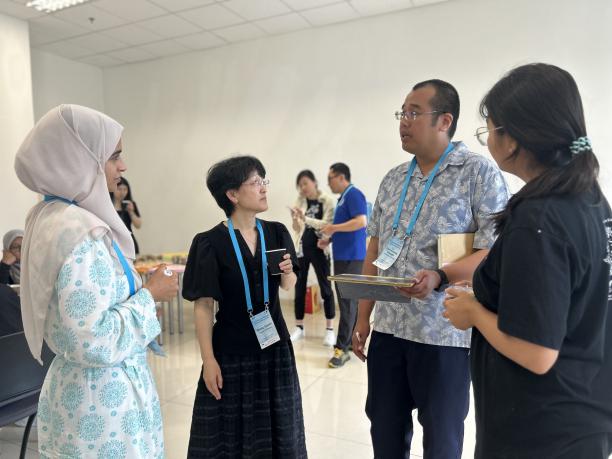
Participants and lecturers discussed during breaks
Aligned with the workshop content, on August 21, a field sampling session is organized at the local Bagan Lalang Beach. With guidance from the lecturers and technical instructors, the participants acquired initial skills in sediment coring, subterranean estuary and submarine groundwater discharge sampling, seawater sampling.
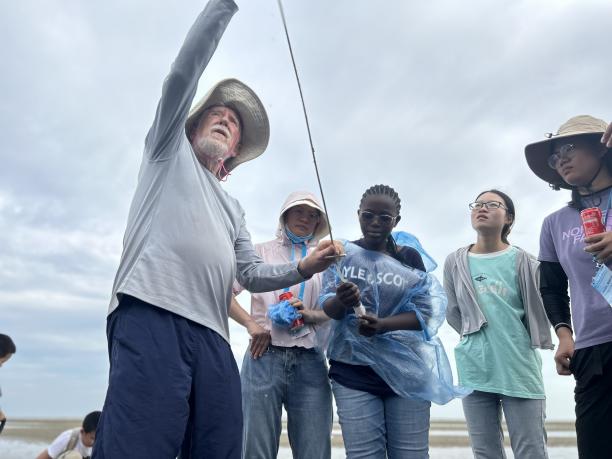
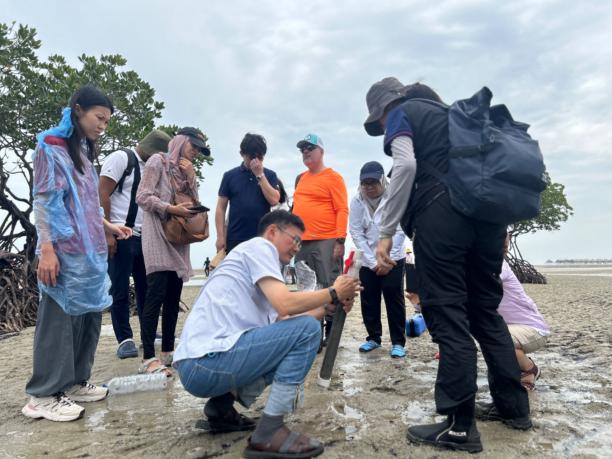
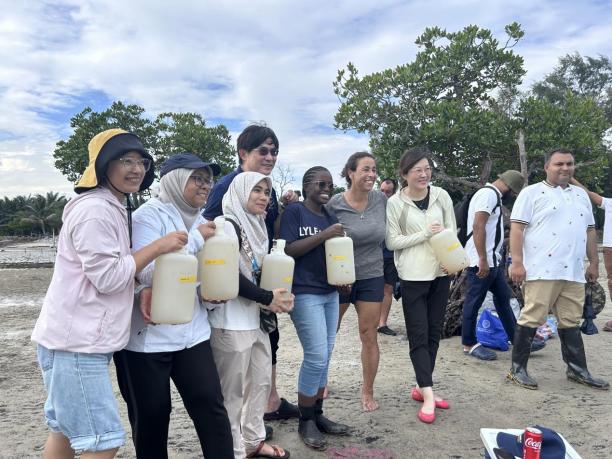
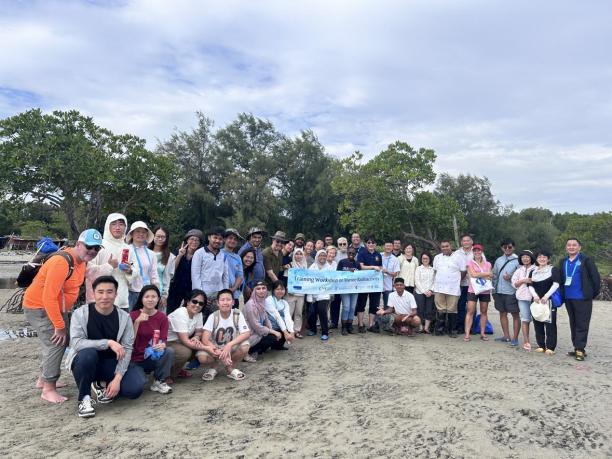
Field sampling on August 21
To deepen the participants' comprehension of marine radioactivity measurement instruments, on the morning of August 22, participants visited the Malaysian Nuclear Agency. Researchers at the laboratory conducted in-depth demonstrations on Gamma analysis, Alpha analysis and Beta counting analysis.
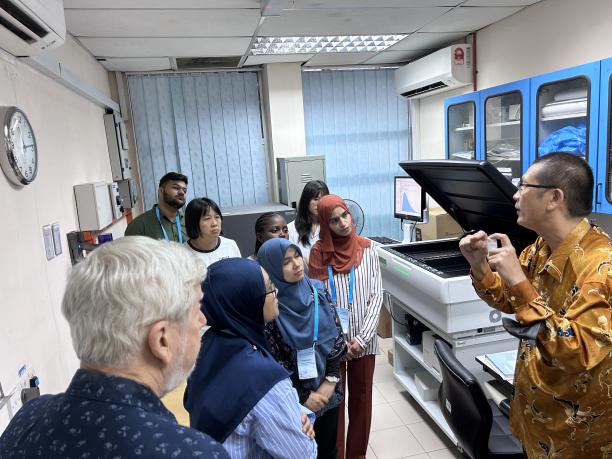
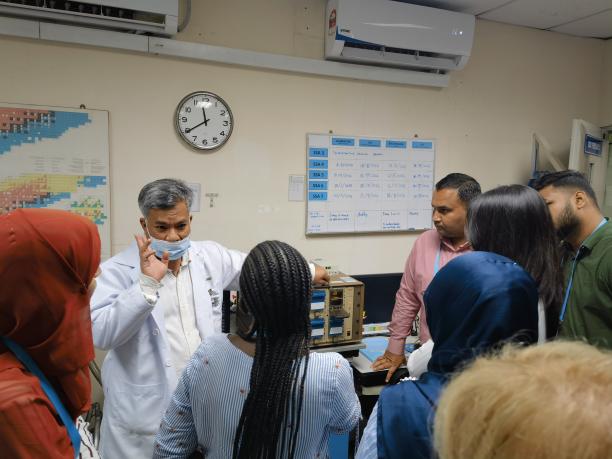
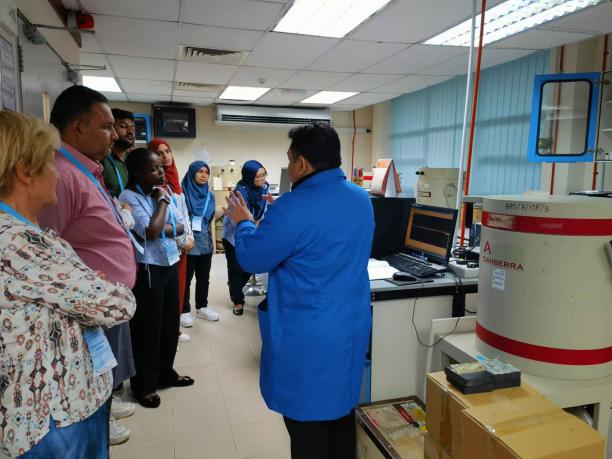
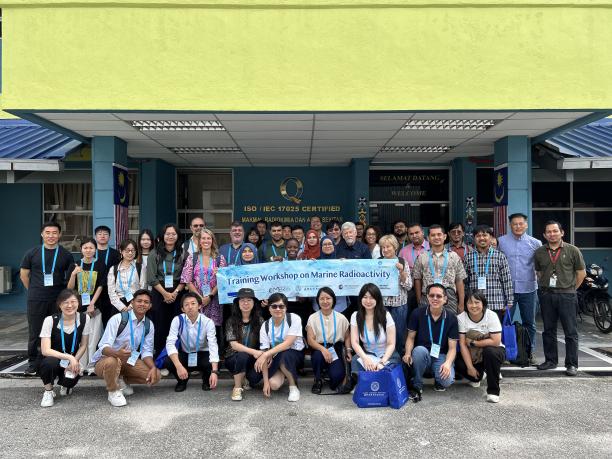
Visit to Malaysian Nuclear Agency
After the visit, lecturers and technical instructors continued to provide guidance on practical-sample pre-treatment at the laboratory of CAMS. Participants were divided into groups and rotated through tasks involving section the sediment core with the Incremental Core Extruding Apparatus and sediment samples pre-treatments, RADECC analysis, RAD7 analysis and filter the precipitates and prepare for beta counting, Beta RISO analysis.
These hands-on sessions not only reinforced participants' grasp of theoretical knowledge but also enhanced their practical application skills.
Through four days of structured theoretical lectures and practical activity, participants not only enhanced their understanding of marine radioactivity research and improved their professional skills but also engaged in deep academic exchanges and fostered strong collaborative relationships.
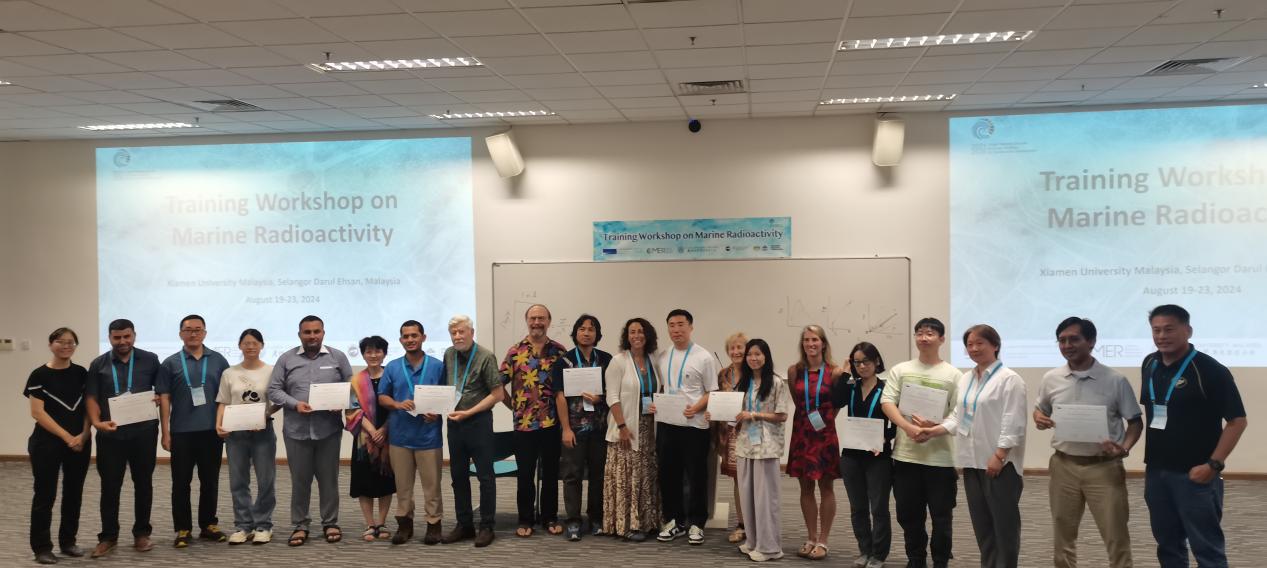
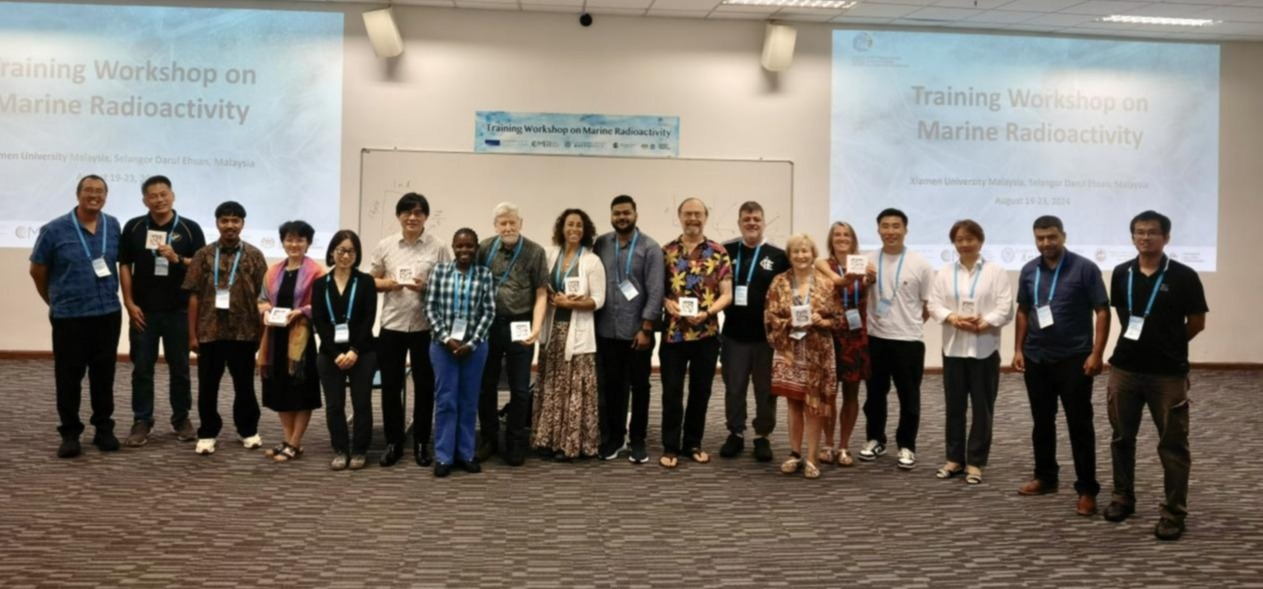 Lecturers presented certificates to the participants
Lecturers presented certificates to the participants
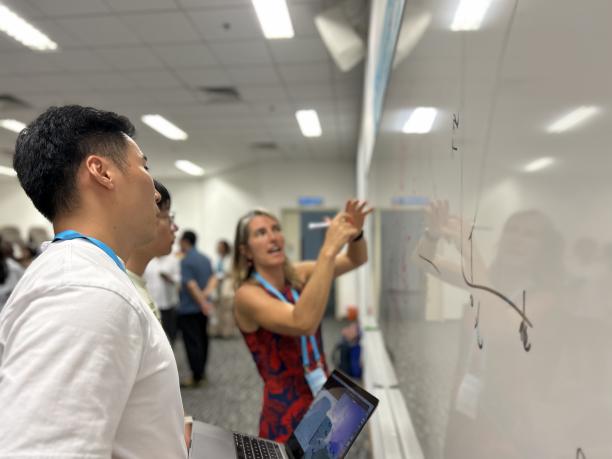
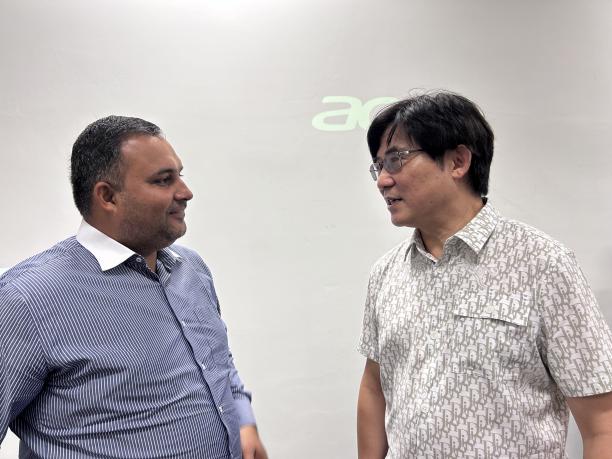
Further discussion after closing ceremony
During the closing ceremony, participants representatives conveyed that the workshop was an excellent learning opportunity, and they gained valuable insights from it.
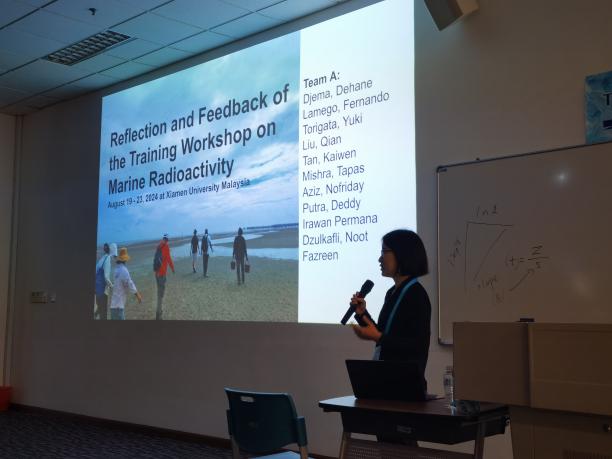
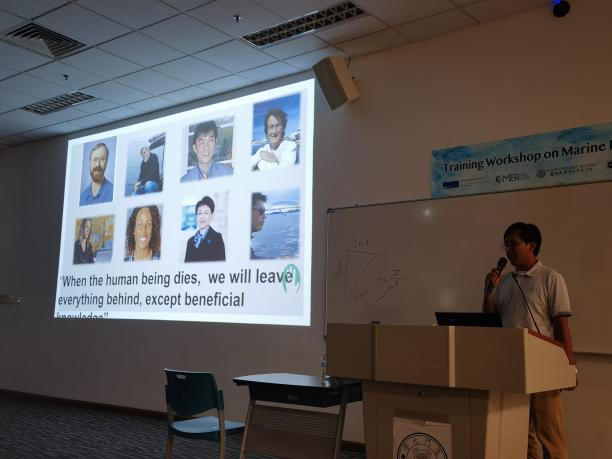
Student representative reporting
It is worth mentioning that Poh Seng Chee and Nooradilah Abdullah, who were participants of the Training Courses on Marine Radiochemistry in Xiamen back in 2016, have now been key figures in Malaysia's marine radioactivity research. Poh Seng Chee is currently an Associate Professor at Universiti Malaysia Terengganu and played a role in organizing and providing technical guidance for the workshop this time. Nooradilah Abdullah is employed at the Malaysian Nuclear Agency. These examples demonstrate the workshop’s success in nurturing young talents in marine radiochemistry and sustaining effective capacity building efforts.
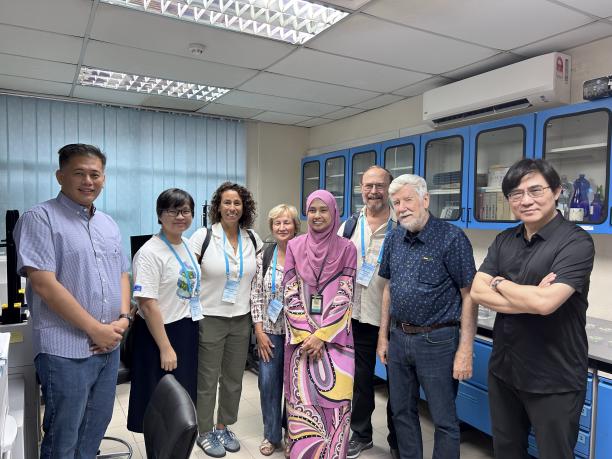
Lecturers, organizing committee and former participants
(Poh Seng Chee is the first from the left, and Nooradilah Abdullah is the fifth from the left)